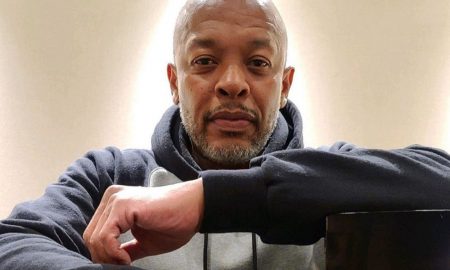
Got Extra Cash Coming in? These are the Best Things to Spend it On

If you play your cards right, there would come a time in life that you’d be bringing in more money than you need to cover the bills.
With living paycheck to paycheck a thing of the past, you might be tempted to start spending your extra cash on luxuries. This might not be the best way to allocate your resources given the current uncertain times.
Instead, financial planner and CIC Wealth executive vice president Malcolm Ethridge recommends you to use your excess money on these three expenses.
Maximize Contributions

Panchenko Vladimir/Shutterstock: Your HSA contributions would come in handy once you enter your retirement
Ethridge suggests people maximize contributions to the company retirement plan and other benefits that your employer may offer. See if your plan allows you to make after-tax contributions to your 401(k) and if it allows these payments to be eventually rolled over to a Roth IRA when you change jobs or retire in the future.
You can also contribute more to your health savings account (HSA). You and your spouse can save up to $3,500 and $7,000, respectively, each year in these accounts.
If the company you work for gives employees the chance to buy company shares, consider investing as purchases would likely come with a 15% discount.
Pay Down Debts

zimmytws/Shutterstock: Americans reportedly carry an average personal debt of $90,460
Another good use of your extra cash is paying down your debts. Ethridge believes that paying off your loans earlier than scheduled would give you a guaranteed return on your money.
Say you have a loan with an annual interest rate of 5% and you pay it a year ahead, you have just gotten yourself a 5% return on your money. That said being aggressive with your debt repaying efforts can give you similar returns as investing in the stock market.
Invest in Yourself

wellphoto/Shutterstock: Getting additional certifications or degrees will have an immediate effect on your income
Don’t underestimate the benefits of investing in your own professional or personal development.
Etheridge encourages people to use their extra money on skill boot camps or workshops that can boost your earning potential in the long run. Of course, you could also take classes to simply satisfy your own intellectual curiosity.
Another reason the financial planner recommends obtaining additional certifications is that your employer would likely reimburse you for the costs of getting them. This is especially true if the executive education program you’re taking is related to your field.
There’s also the fact that you can always use what you’ve learned with you should you decide to move on to another job in the future.
More in Investments & Savings
-
`
How to Spend Money to Maximize Your Happiness
Money can not buy you happiness, or so the old saying goes. But let’s be real for a moment: Having a...
December 6, 2023 -
`
Brad Pitt’s Potential Retirement Plans
Hollywood superstar Brad Pitt is making headlines again, and this time, it’s not about his latest blockbuster or a high-profile relationship. Recent...
November 29, 2023 -
`
How to Rebalance Your Portfolio to Stay on Track
Investing can be rewarding, but the journey to success is not without its twists and turns. Maintaining a well-balanced portfolio is...
November 20, 2023 -
`
Why Millennials Are Investing in Real Estate
In recent years, there has been a noticeable shift in the real estate landscape, with an increasing number of Millennials diving...
November 18, 2023 -
`
Nina Dobrev and Julianne Hough | From Friends to Business Partners
In the world of wine, where passion meets business, best friends Nina Dobrev and Julianne Hough prove that mixing friendship and...
November 7, 2023 -
`
Cha-Ching! Dr. Dre’s Ex-Wife’s $100 Million Divorce Settlement
In the world of Hollywood’s tumultuous divorces, Dr. Dre and his ex-wife Nicole Young’s split takes center stage as one of...
November 1, 2023 -
`
Joe Jonas and Sophie Turner’s Surprising Showbiz Wealth
Joe Jonas and Sophie Turner, the power couple of Hollywood, have managed to amass quite a fortune during their illustrious careers....
October 29, 2023 -
`
10 Best Money Tips to Secure Your Financial Future
Money is vital in our lives, impacting our day-to-day well-being and long-term financial security. Whether you aim to save for a...
October 19, 2023 -
`
The World’s Richest Celebrity Couples
Love and fame are not mutually exclusive, and when the two worlds collide, they create a magnetic force of success and...
October 3, 2023















You must be logged in to post a comment Login